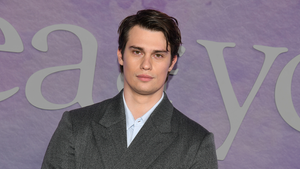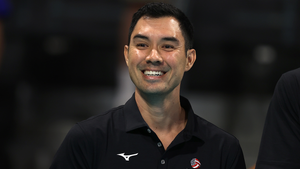Are gay male stories only marketable when written by women?
With the massive popularity of stories like Love, Simon and Heartstopper, critiques have popped up about them being written by women – especially straight women. The critiques on straight women writing queer stories became so loud that some authors have felt pressured to identify their sexualities publicly — sometimes before they'd even processed their sexualities for themselves.
Author and YouTuber Savy Writes Books launched a recent conversation about the topic on Threads with her own "Pride month hot take."
"The 'straight women are dominating MM [male-on-male] fiction!!' is a moral panic rooted in misogyny," she wrote. "Let's look at some examples, all of authors I LOVE. Hank Green was still publicly identifying as straight when he wrote his FF [female-on-female] series (which I loved), and nobody ever got mad at him for being a straight man writing FF with a bisexual FMC [female main character]. Nobody demanded he come out of the closet, and he got to do so on his own terms, when he was ready."
She gave the examples of Becky Albertalli, Casey McQuiston, and Alice Oseman, who wrote Love, Simon, Red White and Royal Blue, and Heartstopper, respectively. "All these authors were presumed to be cishet women, then were harassed for writing MM fiction, harassed to the point of feeling pressured to out themselves. That is not safe or okay."
Men continue to dominate the film industry, even when it comes to female-centered films. "Men lead the exploitative lesbian porn industry, creating it for a straight male gaze," she says. Ultimately, she's calling for readers to stop policing authors' sexualities and just enjoy the book.
"My point is, stop wasting time speculating which authors might be cishet women and just read some queer books. You never know who is straight or who is cis. You never know what someone might be questioning. There is LITERALLY no way for you to know that about an author. And accept that some of this stems from James Somerton style queer misogyny. Because it does. Signed, A very queer woman who writes FF, MM, and more.
Aaron Aceves, bisexual author of This Is Why They Hate Us, believes "that's not the whole picture" and replied to the thread with his own take.
"First off, non-women writing sapphic stories is nowhere near as prevalent as non-men writing Achilles stories," he wrote, referring to the popular gay novelThe Song of Achilles by Madeline Miller.
"Second, for me, a queer male author writing queer boys/men, it’s about the author/audience feedback loop. When non-men write for non-male audiences, their work is usually gushed about even when they get things wrong or write something problematic (which is possible for anyone writing outside their lived experience). It becomes an even worse problem when queer men write about their own experiences and are labeled dangerous because the non male audience is accustomed to unrealistic or less nuanced depictions of queer male sexuality (which happened to me, I was literally accused of writing CP)."
A long-time critique about popular stories like Heartstopper is that they're sanitized to present their romance as PG. There are many gay shows and movies written by men, but the most popular ones as of late are from people not of that experience, and they are often marketed to younger or female audiences.
"Readers (typically non-men) read Heartstopper, love it, then trash my book because the protagonist doesn’t just want to hold his best friend’s hand. (This also happened to a number of my queer male author friends.)," wrote Aceves. Even the most popular gay books-turned-movies written by men like Call My By Your Name have faced similar critiques.
He believes there's a double standard. "There’s also the sheer difference in success (sales and adaptations) for MM books based on who wrote them. Compare RWRB, Song of Achilles, Simon vs, Heartstopper, and Heated Rivalry to They Both Die at the End and…?"
Aceves concluded, "I am not policing anyone’s identity, I just want queer male authors to receive more support (than we are currently are) while representing ourselves."
Queer stories feel more important than ever right now. Be sure to review Out's new list of LGBTQ+ books published this year.







































































